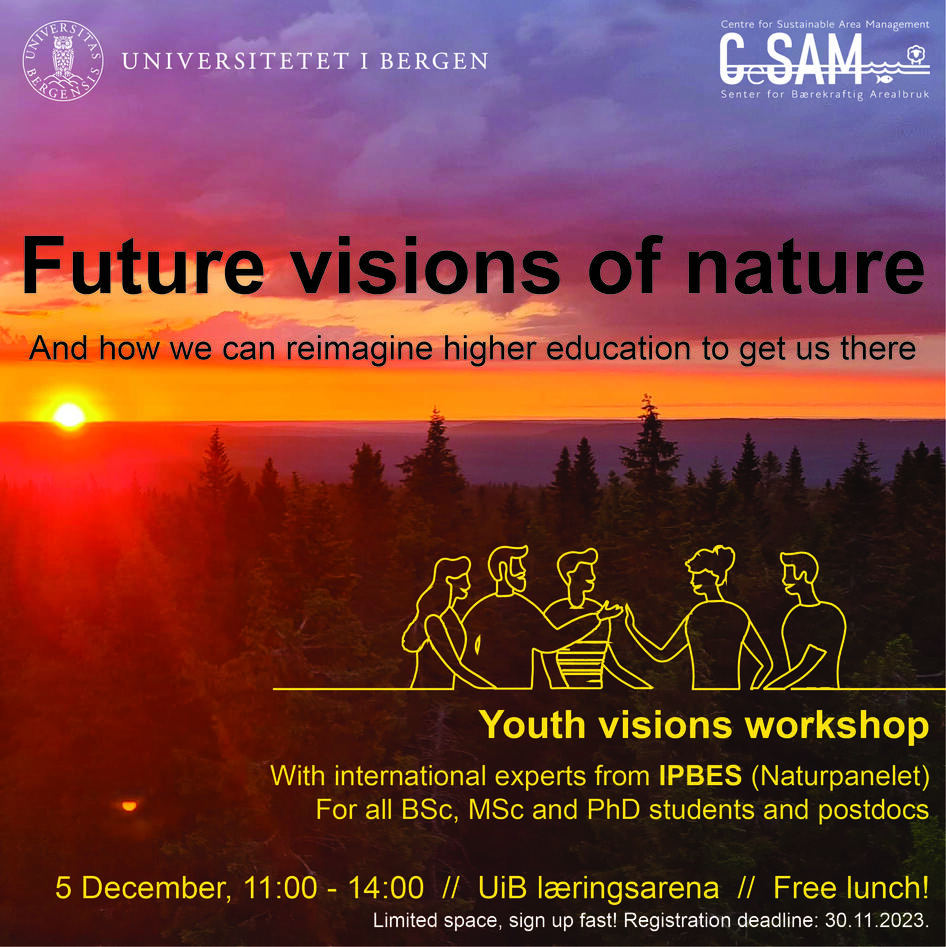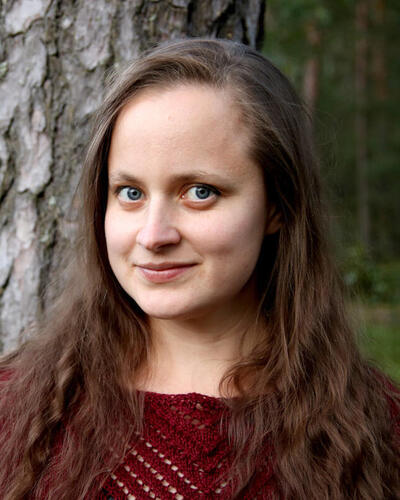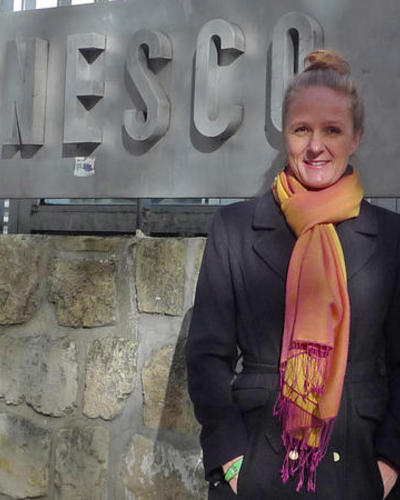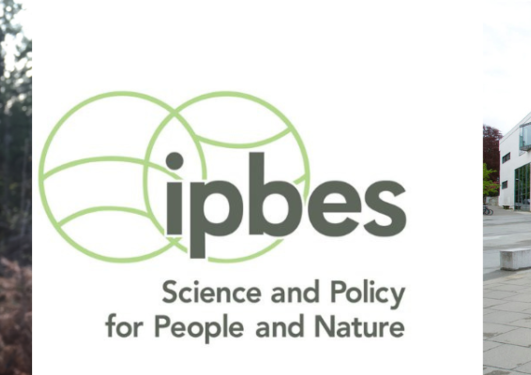Future visions of nature – and how we can reimagine higher education to get us there
What is your vision for the future of nature? In this workshop for students and early career-scientists, we will envision our visions for the future of nature and discuss how higher education needs to transform to get us there.

Hovedinnhold
Join us in a workshop to envision possible positive futures for nature – and how we might reimagine study programs and educational activities at universities to support developments towards those visions. We will be joined by experts from the Intergovernmental Science-Policy Platform on Biodiversity and Ecosystem Services (IPBES/Naturpanelet), all of whom are world-leading researchers in the fields of biodiversity, sustainability and societal transformation.
The workshop is open to all BSc, MSc and PhD students and postdocs at UiB. The workshop will be held in English, and due to a limited places at the venue, please sign up in the link provided.
Free lunch will be provided!
Schedule
11:00-12:00 Part 1
- Introduction by the experts from the Nature Pannel IPBES.
- Group workshop: We will hold a dynamic activity to help envision different possible positive futures for nature, using a framework developed by IPBES “The Nature’s Futures Framework”.
12:00-13:00 Lunch, including chance to meet and discuss with Ipbes experts
13:00-14:00 Part 2
- Group Workshop: In this session, we will work together to understand the role of higher education in equipping a generation of leaders that build a better future for nature.
- Plenary discussion: We will come together to share and reflect on the results of our workshop, and how each of us can work towards a better future for all.
IPBES Experts
We will be accompanied by four prominent IPBES members:
Prof. Paula Harrison (Nexus Assessment): is Principal Natural Capital Scientist at the UK Centre for Ecology & Hydrology and Professor of Land and Water Modelling at Lancaster University. Prof. Harrison specialises in working across sectors and disciplines to integrate different types of knowledge for supporting evidence-based decision-making. Her work focuses on developing integrated scenario and modelling platforms that enable exploration of the effects of multiple drivers (including climate change) on the interlinkages between biodiversity, agriculture, forestry, water resources and urban development.
Prof. Pamela McElwee (Nexus Assessment): is Professor of Human Ecology in the School of Environmental and Biological Sciences at Rutgers, The State University of New Jersey. Her primary research interests revolve around how communities and households are impacted by and adapting to environmental change, and how policies and governance can help or hinder sustainability efforts. She has conducted research in Southeast Asia on these topics for more than two decades. She also leads the Cultural Practices and Ecosystem Management Thematic Group for IUCN and is currently Chapter Lead for Ecosystems for the Fifth US National Climate Assessment.
Prof. Karen O’Brien (Transformative Change Assessment): is a Professor in the Department of Sociology and Human Geography at the University of Oslo, Norway. Prof. O'Brien's current research focuses on integrative approaches to transformations to sustainability. Other research by Prof. O’Brien has focused on links between climate change adaptation and transformation, environmental change and globalization, the implications of climate change for human security, the values and visions of youth related to the future in a changing climate, and the relationship between tropical deforestation and climate change.
Prof. Helen Roy (Invasive Alien Species Assessment): is a Professor of Ecology at the UK Centre for Ecology and Hydrology. Her research focuses on the effects of environmental change on insect populations and communities, and she is particularly interested in the dynamics of invasive non-native species and their effects on biodiversity and ecosystems. She is also a co-chair for the IPBES Thematic Assessment on Invasive Alien Species and their control. Professor Roy is an expert in community ecology, invasion biology, entomology, biological recording, and science communication.




